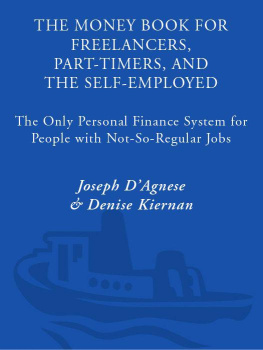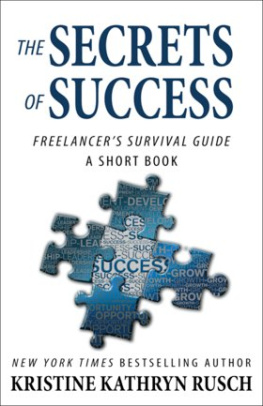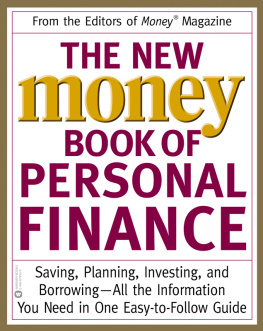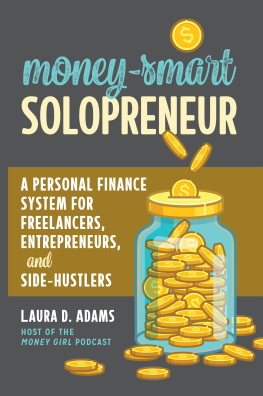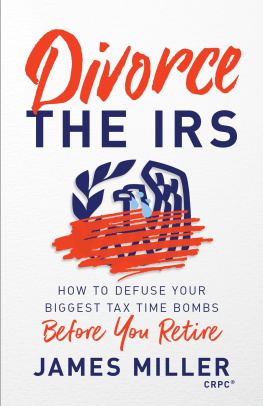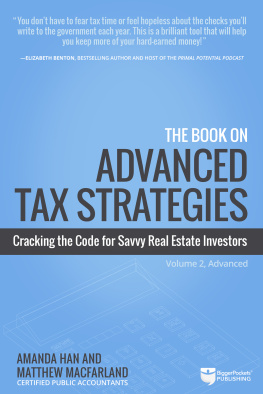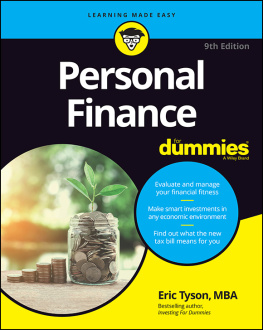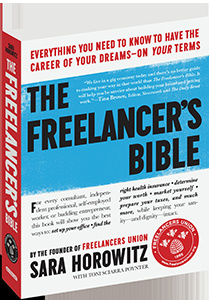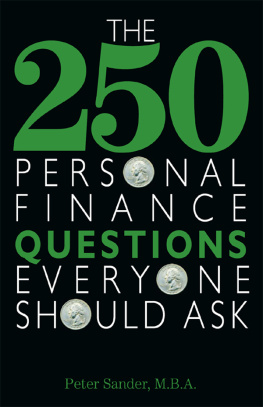This book is dedicated to its readers, who,
while striving to get their finances in order,
paid their hard-earned money for it.
CONTENTS
PART I:
CHAPTER 1
CHAPTER 2 Getting Green and Dropping Hamiltons (Or, Where
Did All My Money Go?)
CHAPTER 3
CHAPTER 4
PART II:
CHAPTER 5
CHAPTER 6
CHAPTER 7
CHAPTER 8
CHAPTER 9
PART III:
CHAPTER 10
CHAPTER 11
CHAPTER 12
INTRODUCTION
HOW WE CAME TO WRITE THIS BOOK
W e sat on the edge of the bed in our friends tiny garage apartment, in tears. We were ashamed, really, of what a mess wed made of our lives. We had bought the old Victorian house for under $150,000, knowing it needed work. But it was, in theory (and in sneaky real estate advertisingspeak), habitable. The burst pipe and subsequent flooding of our home had certainly not been our fault, per senor had the death of our car the same weekbut the costs that followed had shed brutal light on the realities of our financial life and (lack of a) plan.
The beginning of the end came on an icy cold night in January as we were headed from New Jersey back to our home in North Carolina in our very old, very usedbut totally paid forVolvo. We made it as far as Dinwiddie, Virginia, when the car died. Big shock: the cost to repair the car would have been more than we had paid for it. So we bade farewell to it in a friendly mechanics parking lot in nearby Petersburg, loaded our stuff into a rental vehicle, and hit the road, wondering how we would pay for a new car. We had just bought a house, after all.
Our homecoming was a jarring one: before wed even slipped the key into the lock, we knew there was a serious problem. Through the pane of glass in the kitchen door we could see where the ceiling, weighed down by torrents of water, had collapsed. Stunned, we walked through the soaked insides of our already run-down home, which we had owned for mere months, and surveyed the damage. There was nothing we could do. It was late and it was cold, so we checked into a nearby hotel, not knowing that we would be living there until the insurance money ran out.
No car. Nowhere to live. But the car rental and the hotel fees were just the beginning. Once the home repairs began, our contractor turned up more problems every day. The heating/ cooling system was dead. The plumbing shot. The electrical wiring dangerously outdated. And there were long-neglected structural problems that required immediate attention. Our meager but exceptionally hard-earned savings were drying up a lot faster than the soaked, rotting foundation of our house.
So why was it shame that we were feeling? After all, werent we merely the victims of seriously bad luck? Maybe. But the choicesthe financial choicesleading up to the situation in which wed found ourselves were all on us: the choice to use most of our savings on a down payment, leaving little to none for our future. The choice not to have an emergency fund. The choice to buy a house that needed work. And perhaps most important, the choice to do all of this as freelancers, workers who, more than most, need the kinds of safety nets that we had blithely ignored.
Facing mounting debt and dwindling savings, we could no longer ignore our unrealistic approach to financial stability. Nor could we turn our backs on the life and career wed chosen. So after a good talk and a good cry, we had another realization: We werent ready to give up. We wanted to find a way to make things work.
We had to stop whining and start looking for help.
So we transformed ourselves into personal-finance geeks. We read everything we could get our hands onthe books, the Web sites, the blogsand quickly realized that independent workers get the short end of the personal-finance advice stick. Youd think that someone would reach out to people like us with serious advice. But most personal finance resources are anything but personalthey are all geared toward the assumption that the reader is employed in a traditional job. We needed a book that spoke our language.
Inspired, we began to construct what was initially a Frankenstein of a financial plan: in the beginning, it may have been ugly, but it was definitely up and walking around. We slowlybut steadilybegan repeating the still-true, age-old mantra that was observed religiously by our immigrant grandparents: Pay yourself first. Then we came up with our own mantra of sorts: Feed the monkey. We began saying this every time we tossed a coin into our office piggy bank, which was shaped like a happy little monkey. The monkey represented something that needed to be fed and cared for or it would become an unruly, hairy little monster and overtake our lives. We had to start smallvery, very smallbut we had started. As the months and years passed, we climbed out of a negative net worth and into a positive one. We kept finessing and refining our approach, and as our situation improved, the system we had developed remained relevant. It grew with us, in other words, and our success gave us the encouragement to keep going.
Our livelihood may not have changedwe still work from home, we still have clients who pay late, and we still have spells when the jobs arent rolling in as quickly as wed likebut our lives have. We know where our money is going and why its going there. We dont scramble like maniacs at tax time, trying to scrounge up enough money to pay dear, spendthrift Uncle Sam. When things get tight, or a check arrives late, we have a plan and a cushion to get us through. And we sleep a whole lot better at night.
This is a book for people like us, and we all know who we are.
We make our own hours, keep our own profits, chart our own way. We have things like gigs, contracts, customers, clients, and assignments. We work long hours, and we know were not alone. In fact, according to the Freelancers Union, an advocacy group for Americas independent workforce, freelancers, part-timers, consultants, and the like constitute more than 30 percent of the nations workforce. And this number is only expected to rise in the wake of the growing work-friendly telecom culture and, in some cases, the downsizing of the traditional salaried workforce.
People like us have been told over and over again that going into business for oneselfas an independent contractor, freelancer, etc.is an elusive dream, one that will necessarily mean sacrificing financial security. Weve been told that working several jobs to make ends meet so that we can pursue our dreams or better ourselves is riskybetter to just get a real job. Weve been told that if we find individual health insurance prohibitively expensive, well, its our own fault for needing it in the first place. Shame on us for not seeking more stable employment with handsome benefits.
But what if that job isnt out there? And what if teaching yoga or starting your own contracting business, Web design firm, or PR shop is a lifelong dream? If you go that route, then who is planning for your retirement? Who covers your expenses when clients flake out and checks are late? Who is setting money aside for your taxes? Who is responsible for your health insurance?
Take a good look in the mirror: you are.
Were actually OK with that, because in the end, arent all adults ultimately responsible for themselves? A real job tends to cloud this reality. And heres the final, biting irony, tinged with a little I-told-you-so cynicism: why, if traditional jobs are so great, is our economic system so hell-bent on churning out so many more independent workers? The truth is, corporate America has been shucking off employees in record numbers. As a result, we are witnessing the birth of a powerful, if underground, demographic. When times are tough, more and more of us freelancers are born.

